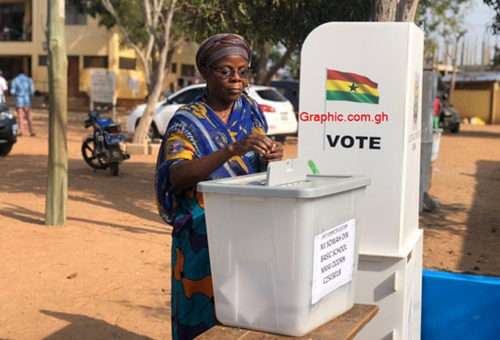
Election 2024: Do our social identities matter as voters?
In a recent interview I was asked the following question – “Will the North be the battleground following the election of Dr Mahamudu Bawumia and John Mahama from the North?”
Advertisement
The question came up following the election of Dr Bawumia as the presidential candidate for the New Patriotic Party (NPP).
The question goes beyond political competition in the north.
It also brings up the issue of social identity and how it shapes electoral choices.
In this specific case, how much does our ethnic identity matter when it comes to who we vote for?
Does it matter if the candidate shares the same ethnicity identity with the voter?
Let me first answer the question of the competitiveness of the northern regions in the coming elections and then answer the question of social identity and voter choice.
The North as a battleground?
Going into any election, the political strategy is to protect your home turf (stronghold) and win the swing regions (those regions whose votes have alternated between the NDC and the NPP in our eight elections).
But part of election strategy is also to see how many votes you can poach from your opponent’s home turf.
Do political parties pursue an active strategy of choosing a candidate that allows them to poach voters from their opponent’s strongholds?
If you look at the presidential candidates chosen by the NPP and NDC over the years, I will argue that the answer is an unequivocal no.
I believe the main motivation of party delegates has been the candidate they believe gives them the best chance of winning the election.
Where identity has come is the selection of the running mate because our parties have generally pursued a strategy of regional balancing — a presidential candidate from the south with a running mate from the north or a presidential candidate from the north with a running mate from the south.
So, will the “north” be a battle ground?
Let me answer the question this way.
Has anyone paid close attention to the performance of the NPP in the northern regions, their main opponent’s home turf?
This is captured well by Peace FM’s Ghana elections database.
In the Northern Region, where they have traditionally performed well, the party has increased its share of the vote from 39 per cent (1996) to 46 per cent (2020).
In the Upper East Region, they have increased their share of the vote from 17 per cent (1996) to 34 per cent (2020).
In the Upper West Region, they have increased their share of the vote from 11 per cent (1996) to 29 per cent (2020).
In the newly created Northeast Region, they have increased their share of the vote from 12 per cent (1996) to 51 per cent (2020).
Advertisement
The NPP has already been competing well against the NDC in the northern regions.
Not that they are or plan to, but it is my opinion that they do not need to play up the ethnicity of Dr Bawumia to strengthen their hand.
But as James Carville, a United States political strategist, once said “all is fair, love, war, and running for president” the temptation may be there to engage in identity politics.
Before any of our parties succumb to this temptation let’s reflect together on the second question.
Advertisement
Do voters care about ethnicity?
I don’t believe they do to the extent that some believe they do.
In Afrobarometer Round 7 (2017), when Ghanaians were asked the main reason for their choice of president in the 2016 election, only two per cent said it was because of a shared ethnic identity with the candidate.
If ethnicity really matters, how does one explain the 2000 and 2004 losses of the late President Mills in the Central Region?
Or how does one explain the improved performance of the NPP in the northern regions while competing against a candidate from one of the regions in that part of the country?
Advertisement
The role of the running mate may be limited but I can’t help but ask.
If ethnicity really matters, how does one explain the NDC’s loss in the Central Region in 2016 and 2020 when they had running mates from the region?
Or the NPPs loss in 2008 and 2012 when the party had a running mate from the “north”?
This for me is a clear indication that ethnicity has a very limited role in our election.
What should matter?
I don’t deny that political parties all over the world make both overt and subtle appeals to the social identities of voters during elections.
And I don’t deny that some voters respond positively to these appeals.
But what should matter most?
The bread-and-butter issues (jobs, economy, cost of living, etc.) or our social identities?
Voters will have the final say in 2024 but I hope bread-and-butter issues are what matters the most.
NB: The writer is a Democracy and Development fellow at the Ghana Centre for Democratic Development (CDD-Ghana).




